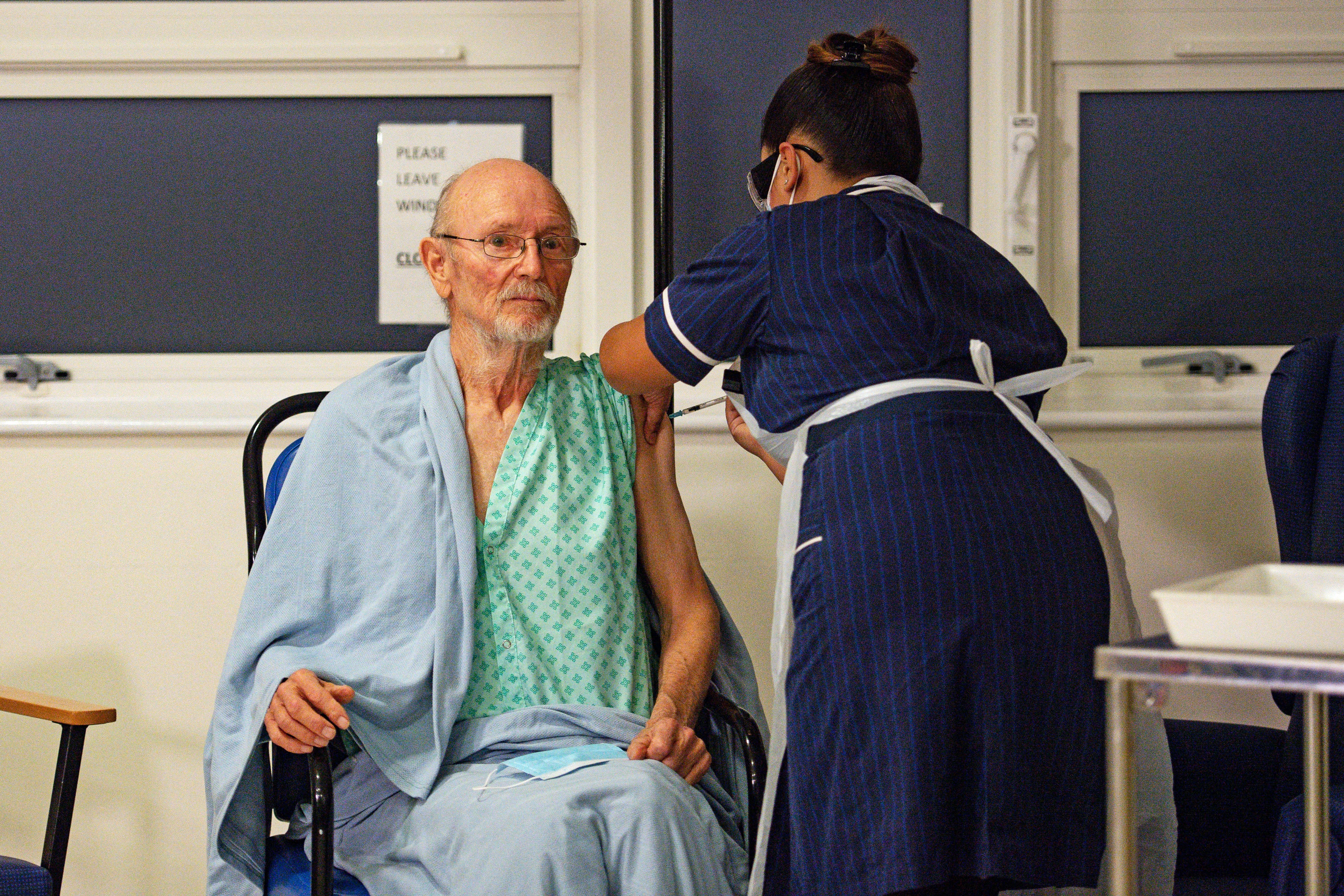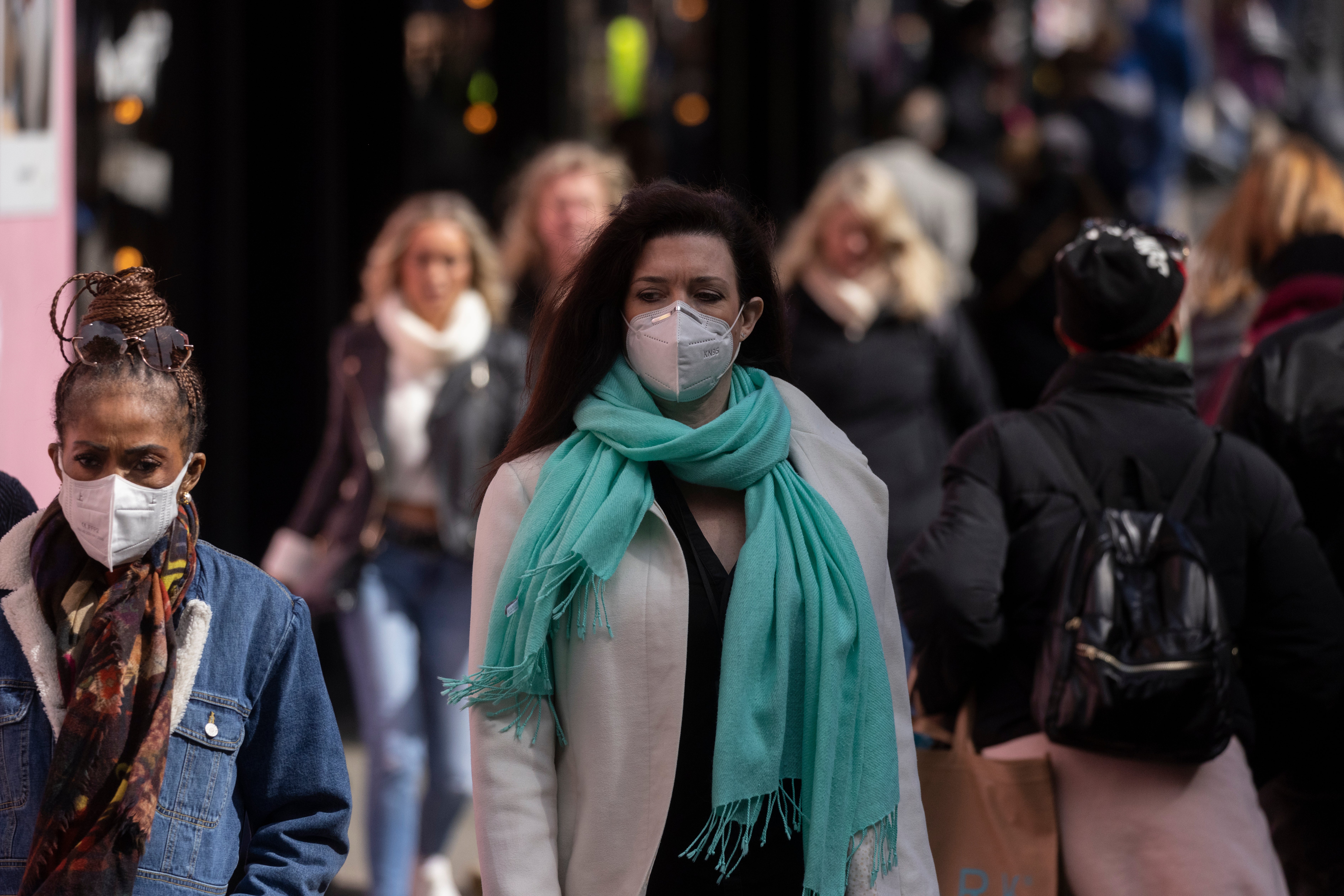The Independent's journalism is supported by our readers. When you purchase through links on our site, we may earn commission.
We have lived through a Covid summer – and now there is new variant causing concern
As a new stronger covid strain spreading across Europe is identified, Zoe Beaty looks at the symptoms and how we’re still living with the virus four years after the world went into lockdown


Her morning coffee was the first clue. Earlier in the summer, Rebecca Jones made her usual pot at 8am, and took the much-awaited first sip. Only, it tasted off. “It was just horrible,” says Jones. She’d tasted it once before, back in 2020. “That’s when I knew it was Covid.”
During this year’s unsettled summer, Covid has been quietly lurking in the background of many people’s lives. Four years ago, the sense of urgency was still in its infancy – we would still experience two more nationwide lockdowns and UK death figures would reach 227,000 by May of 2023. Worldwide, that toll stretched to more than 7 million. We wore masks, we distanced ourselves, isolated – and worried.
The road back to normality was long and arduous, but very sweet for the majority. Our simplest pleasures – hugging, holidaying, not worrying about where a surgical mask is – for a while were consistently vocalised. It made sense that much of the thrill of being able to nip for a pint after work or do a food shop without queuing wore off relatively quickly.
For a while, it was almost a surprise when someone told you they’d tested positive. Isolation seemed silly again. But now, that confidence is steadily being chipped away at. A morsel of fear is back – but this time with little to no solid advice. And with a wider perspective of the new threat that long Covid poses.
Reports earlier this year found that up to two million people are living with long Covid in the UK, or one in 20 people who have contracted the disease. And according to experts a new ‘stronger’ variant is now spreading across Europe. First identified as the XEC strain in Germany in June, global health experts believe that it could be the dominant variant within months and cause a new spike when the weather turns colder.
Symptoms include tiredness, difficulty sleeping, shortness of breath and chest pain, among many others. The latest UK figures show there has been a 4.30 per cent rise in Covid cases week-on-week and England reported 1.465 hospital admissions up until August 30. Detailed data is still being collected on the new variant.
Most people will get better within a few weeks, but for others it could take longer to recover. People who smoke or who are overweight, who have been admitted to hospital due to the severity of their Covid symptoms in the past . or who live in deprived areas are most at risk. Age is also linked to “persistent symptoms”.
“Over the last few years, Covid-19 has become an illness that we have learnt to live with. But that does not mean it’s not still a deadly disease,” says Professor Mark Wass, head of the University of Kent’s School of Bioscience. “Data from the UK Health Security Agency (UKHSA) shows that over the last few months there have been 100-200 deaths related to Covid-19 per week.
“While Covid-19 is still deadly, for many symptoms are now similar to a cold – but there is always the risk of long Covid,” Wass adds.
This year’s “summer Covid wave” – a rise in cases – is difficult to prove. “The surveillance of Covid cases in the UK is far less intensive than it once was, so it is more difficult to track the rise and fall of waves of infection, or to assess the severity of different variants, or to know how effective the vaccines are against them,” Mark Woolhouse, professor of infectious disease epidemiology at the University of Edinburgh, told the British Medical Journal (BMJ) recently.

In our homes, the trend has followed suit. Most of us now only test as an afterthought. None of us are sure if old Covid tests are out of date. And we’re reluctant to spend £29.99 for one.
While it is hard to track infections, there has been an increase in the number of cases where Covid is recorded on death certificates in the UK in the past months. After a spike in January and February, numbers fell sharply until May when the lowest number of deaths in a week stood at 93, before climbing again above 200 on several weeks in July and August.
Being vaccinated reduces the risk of contracting long Covid by four times, some studies suggest – but, right now, only the most vulnerable are able to access a booster vaccination. Government vaccine advisers, the UK Health Security Agency (UKHSA) and the JCVI (Joint Committee on Vaccination and Immunisation) closed the spring campaign offering boosters to the over-75s, people in care homes or those who are immunosuppressed – on 30 June.
Wass says that vaccine programmes are now seasonal, no autumn vaccine programme has been announced – those who wish to be vaccinated must now pay £45 to £99 for a booster. “If you are eligible, then the advice is to get vaccinated. We know that the immunity offered by vaccines reduces over time, so getting vaccinated offers the best protection.”
Anecdotally at least, those unable to get boosters who catch the virus appear to be feeling the after-effects. And since knowledge of long Covid will only increase as the years go by, we’re learning of more cases or more severe cases.
One friend was diagnosed with Parsonage-Turner syndrome – a neurological condition that causes sudden, severe pain in the shoulder and upper arm – after contracting Covid in June. Despite being a healthy 39-year-old who regularly works out, he’s now living with consistent pain and weakness, which can last for months.
“At first I thought it was arthritis,” he tells me. About a week before he felt “unbelievably sharp pains” across his shoulder and he’d begun to experience brain fog and feeling faint. “The next day I was bedridden and by the end of day three I had a rash across my body.” The initial symptoms went away relatively quickly – but since then he’s been left with an incurable condition.
If you have Covid-19, then the advice is the same as for other contagious respiratory diseases. We should try to reduce their spread by trying to stay at home and avoiding contact with people
“The doctors said it was probably the virus attacking my joints,” he explains. “It means I can’t lift anything remotely heavy with my left arm. It’s been incredibly debilitating – especially as weight lifting is how I stave off depression.”
Others express the same difficulties and frustrations – at GPs who “treat it just like another germ”, or being “horrified and upset that no one tests these days, and expects you to be okay after a couple of days”. Olivia, 35, whose name has been changed, has been dealing with long Covid for almost a year. “It’s crazy being someone whose life has been so affected by Covid, and having these conversations with friends who are going around knowing they’ve got Covid, going to work, all those things.
“Because there’s no acknowledgement by society that it’s a bad thing if you catch it, or it can be. It’s way higher than you think.” Next week Olivia will move in with her boyfriend who contracted long Covid this summer. “We’re partly moving in so I can help look after him. A lot of the symptoms are the same as I’ve had.
“It seems mad that both of us could have it. But that seems to be the situation.”
Olivia had to take three months off her role as a programme director to try and recover – greatly affecting her work – an experience that millions of others share, some of them in extremes. This week the Wall Street Journal reported that “long Covid knocked a million Americans off their career paths”. “Years after infection, even answering email remains arduous for some,” they found.

BBC Breakfast recently ran a 15-minute segment on those who have contracted ME, or chronic fatigue syndrome, as a result of contracting Covid. They reported on cases such as young newlyweds James and Karen Hargrave.
While Karen, who has launched a campaign – There for ME, to raise awareness of their experiences – recovered from the virus and ME enough to go back to work part-time, her husband, previously a keen runner, can no longer function. He is now unable to speak – she hasn’t heard his voice in a year – and he struggles to swallow.
Rebecca Jones, from Holton-le-Clay in Lincolnshire, also contracted long Covid the first time she caught the virus. It left her with alopecia and fatigue and even caused her to fail a memory test for dementia, which she says was “terrifying”.
This time she’s been left with “ghost smells”, and disruption to her senses. Now, she’s unable to get vaccinated, despite previously being on the vulnerable list and can’t afford to pay for a private vaccine. Her menopausal hot flushes, which had been dormant for two years before she contracted Covid, have come back and have not stopped since, she says.
“I’ve even emailed my MP,” she says. “But I was just sent the same advice word for word as is on the NHS website. I can’t get vaccinated, even though I want to. In our group of friends, I’ve seen people get Covid and just ignore it and go down to the local. I just thought, how can you be so irresponsible?”
“If you have Covid-19, then the advice is the same as for other contagious respiratory diseases,” says Wass. “We should try to reduce their spread by trying to stay at home and avoiding contact with people.”
Still, many aren’t – or can’t – adhere to that advice. The disruption to work and personal lives has already been great and, while hybrid working continues to help stop the spread of infection of any kind, workers rely on the discretion of their employers to support those experiencing chronic conditions like long Covid. In the US, the condition has been registered as a disability, though it’s yet to be determined in the UK.
In the coming months and years, experts say we’ll be subject to more “waves” as the disease is “driven by a combination of new variants and a partial waning immunity to infection”, Woolhouse told the BMJ.
Will we begin to see a more conscientious approach to dealing with the virus? Those suffering the long-term effects warn that we should.






Join our commenting forum
Join thought-provoking conversations, follow other Independent readers and see their replies
Comments